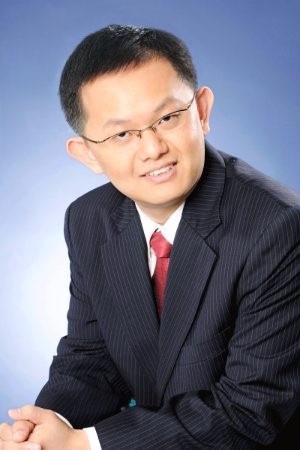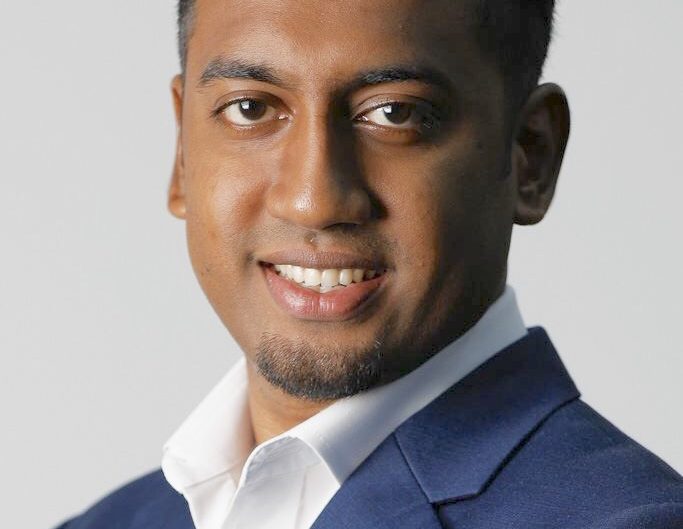By Bharati Jagdish
As PeopleSearch celebrates its 20th Anniversary, we check in on the people we’ve worked with over the years. About 2 years ago, we had the privilege of placing Jim Lim in a fulfilling role as CEO of a health-tech firm. He speaks to us about his career journey.

Jim Lim has held a variety of high-level positions in a range of industries, but his career philosophy has always been underpinned by a few enduring principles – learning, internalising knowledge and skills, and applying them with an entrepreneurial spirit.
Having studied Electrical and Electronic Engineering under the Economic Development Board’s Specialist Manpower Programme scholarship, he started off as an engineer in Singapore’s burgeoning wafer fabrication sector in the late 1990s.
Since then, he has worked for companies such as Accenture, Tech Mahindra, Amdocs and Huawei.
In late 2018, PeopleSearch helped place him in his position as CEO of health-tech company, Good Doctor Technology, a joint venture between China’s largest digital-based health service, Ping An Good Doctor and Southeast Asian digital giant, Grab.
Today, he is Healthcare Sector Lead at a multinational information and communications technology (ICT) and communications engineering services provider headquartered in Singapore.
BROADEN YOUR PERSPECTIVE
On the surface, Jim’s work history would indicate his interests lie in engineering, technology and healthcare. However, a conversation with him soon reveals that at the core, what he really enjoys is multi-skilling.
“Even while I was a student at Nanyang Technological University, I was interested in broadening my perspectives. I was very interested in going into consulting as it would expose me to projects that require solving varied problems for businesses.”
He managed to do so after serving his scholarship bond as an engineer.
His role as a consultant with Accenture deeply influenced him and the course of his career.
He often had to lead people twice his age, but he was only able to do so effectively by learning from them first.
“You need to gather everyone’s knowledge and internalise it before bringing a new perspective to the problem. Whether it was processes, systems, or strategies, I’d have to understand how they currently run it and what makes sense to them. Only then could I bring in global best practices and combine these with their experiences to make it relevant to them.”
The job also required him to take on a variety of projects which enabled him to expand his knowledge, expertise and skillsets.
“In the span of a year, you could be working on two or three projects within large and complex business transformation programmes. They could be anything from building product solutions to re-engineering processes. This forced me to learn new things rapidly. I picked up technical skills as well as transferable skills such as problem-solving and managing teams.”
Consulting also requires a high level of strategic and critical thinking. Being able to hone such skills enabled him to excel in job roles he took on later in his career. Most of them required him to start new divisions from scratch.
To get his role as CEO of Good Doctor Technology, he had to undergo six rounds of interviews.
“It was about starting something new and that excited me. We registered a Singapore company and an Indonesian company. We launched GrabHealth within eight months. I recruited a number of people. In fact, PeopleSearch helped me recruit professionals for many of our key roles.”
WORKING WITH RECRUITERS IN A CHANGING LABOUR LANDSCAPE

Jim’s own professional experience and network gives him an edge when it comes to acquiring talent for his organisation or a job role for himself. However, he says that working with professional recruiters brings potentially transformative benefits to both jobseekers and organisations.
“Headhunters expose you to opportunities outside of your usual network. They also have a direct relationship with the hiring organisation, so they can give candidates very specific insights into what the organisation is looking for. Recruiters can also objectively manage each party’s priorities, capabilities, expectations and aspirations.”
Going forward, Jim sees certain trends taking off more robustly in the labour landscape, partly due to the economic fallout from the pandemic.
“More companies are looking into flexible staffing to keep their fixed manpower costs low. This could be a good thing for employees as well. If you’re doing contract or project work, you can do it for several companies, not just one. I’ve always urged people to make sure they have multiple sources of income to ensure financial security.”
“See yourself as a consultant to companies, not just as an employee who expects an iron rice bowl. Some invest their free time on a side business while others hold consultancy roles in multiple start-ups. This is getting more common in this global gig economy,” he adds.
THE IMPORTANCE OF CONTINUAL EDUCATION
But he cautions against filling up all your free time with work.
“Make time for continual education so that you can build more advanced skills, whether it’s hard skills or soft skills.”
Helping non-profit professional bodies and associations can also provide opportunities for personal and professional growth.
“These organisations could benefit from someone with business or industry experience. Some of them might need mentors. Doing such work can help you hone your skills as well. One of my friends started as a mentor to students in his alma mater and eventually discovered his calling. He became a professional career counsellor.”
Jim himself has been making an effort to expose older PMETs to learning and career opportunities through a group called 59stVentures that he started in 2017. It provides training, advisory and consultancy services to companies all over the world.
“One of our focus areas in the past two years has been education. I’m an adjunct faculty member at a few local universities and I also do corporate training sessions in the Middle East and some parts of ASEAN. We always need trainers and course developers for this type of work. So we have been providing opportunities for those who are willing to teach or use their expertise in this way.”
APPREHENSIONS ABOUT CHANGE
Regardless of one’s age or expertise, the key to surviving and thriving in a post-Covid world is adaptability and agility.
“This is especially so when it comes to adopting technology as digitalisation efforts are accelerated. For example, in the healthcare sector, in the areas of diagnostics and medication management, can technology such as AI help? There are many opportunities that businesses can explore from a digital transformation perspective. People need to work on acquiring skills and expertise to enable and execute such transformation.”
While acknowledging that some are apprehensive about having to constantly reskill and upskill, he points out that the process of learning and adapting doesn’t have to be intimidating.
“Adapting doesn’t mean that you have to “throw away” what you’ve learnt and start from scratch. I didn’t throw away anything that I learnt in my years working in a telco. I see it this way: What I learnt about technology in that industry applies to the role I’m in now, in the health-tech industry. If you see the process as a cumulative growth of your expertise, something that you have been doing for several years even before this crisis, it won’t be so intimidating.”
“From a soft skills perspective, your communication skills, your experience with customers and different types of stakeholders apply to every industry. That kind of experience is valuable, no matter the industry, so you’re never going to be starting from zero. That should give people some confidence. Keep your mind and options open. There are opportunities for those who are willing to learn and contribute.”


Leave A Reply